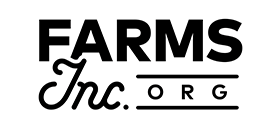The North Dakota House on Tuesday approved a bill to legalize marijuana—a measure that’s being sponsored by a Republican lawmaker who is opposed to the policy change but prefers the legislature sets the rules rather than leave it up to activists via a ballot measure.
The chamber advanced the legislation, which narrowly cleared the Human Services Committee last week, in a 56-38 vote. Lawmakers also passed a separate, complementary bill to establish the tax structure for a recreational cannabis market, 73-21.
HB 1420 would allow adults 21 and older to possess and purchase up to one ounce of cannabis for personal use, but home cultivation would not be allowed. Meanwhile, lawmakers on Monday rejected a separate proposal to place the question of legalizing adult-use marijuana before voters as a 2022 ballot referendum.
Rep. Jason Dockter (R) is the chief sponsor of the House-passed legalization bill. It calls for legal cannabis sales to begin on July 1, 2022.
In committee last week, members approved a series of amendments, including one to adopt regulations from the state’s medical cannabis program to allow existing dispensaries to sell products for adult use. People aged 21 and older would be able to purchase up to 21 grams of marijuana twice a month, but they couldn’t possess more than an ounce at a time.
The legislation now heads to the Senate for consideration. If approved in that chamber, it still remains to be seen whether Gov. Doug Burgum (R) will sign or veto.
The separate tax measure approved by lawmakers would put a 15 percent gross receipts tax on the sale of marijuana products, three percent of which would be transferred to the city or county in which the sale occurs. There would also be a ten percent excise tax on the sale of cannabis from a manufacturer to a dispensary.
An activist group—ND for Freedom of Cannabis Act—has already filed its own 2022 legal marijuana measure that would make it so adults could possess marijuana and grow up to 12 plants (up to six of which could be mature). Secretary of State Al Jaeger said last month that the group can begin working to gather the 26,904 valid signatures from registered voters they will need to place the measure on the ballot.
For his part, Dockter has said that he recognizes the seeming inevitability of legal marijuana reaching the state as more neighboring jurisdictions enact reform and as activists gain momentum for their agenda. If the state is going to enact legalization, he wants the legislature to dictate what that program looks like instead of leaving it in the hands of advocacy groups.
Dockter said on the floor on Tuesday it’s not a question of “if” legalization is coming, “it is coming in—it’s already here.”
That point was echoed by Rep. Matthew Ruby (R). He stressed that the intent of the legislation is “to get ahead of the constitutional measure that is already beginning the signature collection.” And the problem with the activist-led initiative, he said, is that the home cultivation option would complicate the enforcement of possession limits.
Dockter’s bill is being supported by a separate pro-reform campaign, Legalize ND. That group placed a legalization measure on the 2018 ballot that was defeated by voters. They tried to qualify another initiative last year but signature gathering complications caused by the coronavirus pandemic got in the way.
Meanwhile, a bill to significantly expand marijuana decriminalization in North Dakota cleared the House Judiciary Committee last week. But its sponsor, Rep. Shannon Roers Jones (R), said she would recommend that lawmakers reject it if broader legalization legislation is approved.
Her bill would build on an initial marijuana decriminalization law that was enacted in 2019. Under the current statute, possession of half an ounce or less of cannabis is an infraction punishable by a fine of up to $1,000, with no jail time. The new proposal would make possession of up to an ounce a non-criminal offense that carries a $50 fine
House Majority Leader Chet Pollert (R) has said that he’s not “a marijuana person,” but he’s acknowledged that cannabis legalization is coming. While he would have previously been inclined to oppose Dockter’s bill, Pollert said voter approval of a legalization initiative in South Dakota has given him pause, adding that the legislature should “take a long, hard look” at the policy change.
That said, a South Dakota state judge ruled this month that last year’s voter-approved legalization initiative is unconstitutional and cannot go forward—though advocates plan to appeal.
Neighboring Montana also moved to legalize marijuana for adult use during the November election, adding to the regional pressure to get on board. Canada, which also borders the state, has a national legal cannabis market.
North Dakota voters approved a medical cannabis ballot measure in 2016.
-Marijuana Moment
